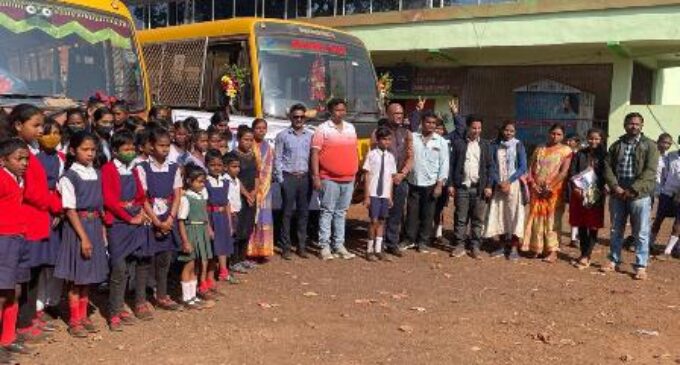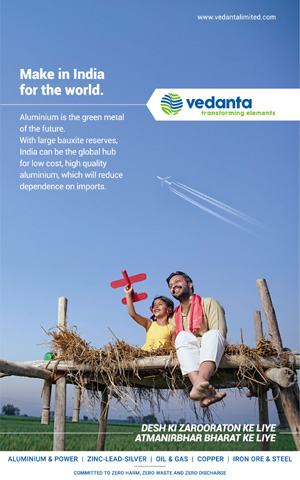Benevolence: JSW comes to rescue of students of remote mining villages

JSW under its CSR has deployed 7 school buses in mining-affected villages to safely transport students to schools in nearby towns.
By Sukanta Kumar Mohanty
Barbil, Nov. 24: To offer seamless connectivity to the school going students, JSW has come forward to deploy several school buses that transports hundreds of students from remote villages of the mining belt to schools in Barbil, Joda and Koira towns Koira every day.
The company deployed a 32-seater school bus on Tuesday in Narayanposhi of Sundergarh district. This is second bus that the company has provided to this village for hassle-free transportation.
The bus will facilitate movement of students from Narayanposhi, Rengalbeda, Kasira and Bhanjapali to Koira. The bus will provide maximum protection for children and its occupants.
The bus was inaugurated by Koira Sarpanch HK Deora. Company officials were also present at the event.
Sarpanch Deora said, “This is a great help for the students. We thank the company for the support.”
Similarly, in November, two school buses were also launched for the Jajang area. It was inaugurated by Jajang Sarpanch Priyanka Majhi. This 32-seater bus will travel from Bandhuabeda, Jurudi and Jajang to Joda.
Likewise, two school buses were unveiled for the Nuagain area. Sarpanch Pabitra Munda did the honour of inaugurating the busses.
For the little children of many of these villages, attending school has always been difficult, owing to lack of private or public transport. Now that the buses ply on a daily basis picking up and dropping off the students from their doorsteps, it feels like a dreamy ride to a bright future.
JSW has deployed 7 school buses in four mining areas including one in Ganua. JSW Foundation, the CSR arm of the multi-billion dollar steel to cement conglomerate has been working on several socio-economic issues of the mining affected villages since taking lease of 4 iron ore mines in Joda and Koira blocks. The company is working in close collaboration with the communities to ensure access to education, drinking water, health care and other basic necessities to the people.






